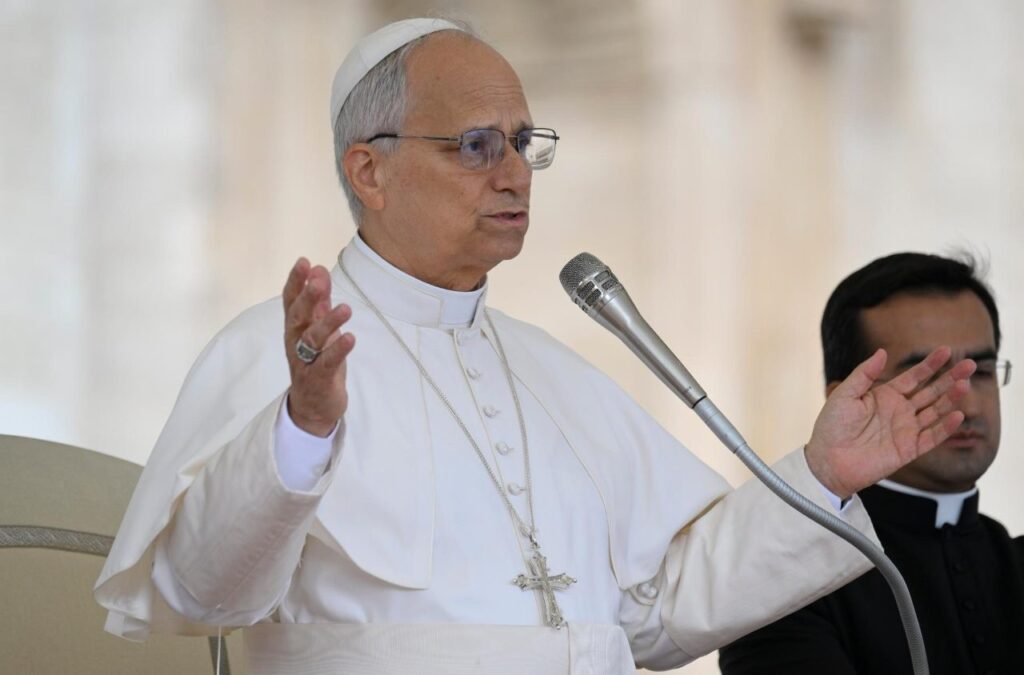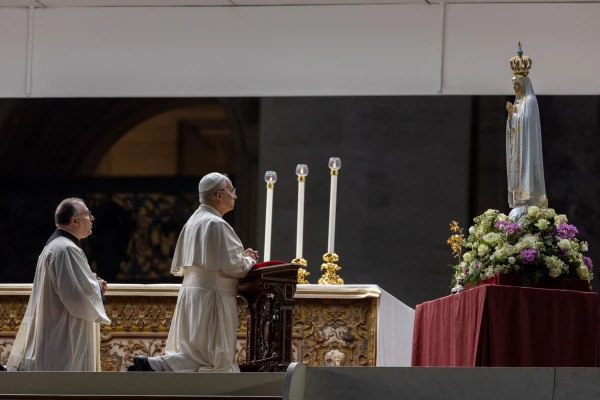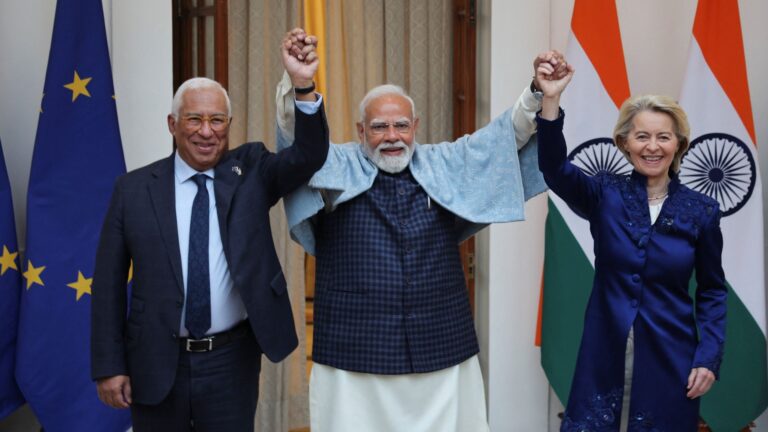
Under the glow of St. Peter’s Basilica, faith and diplomacy converged as Pope Leo XIV led a global Rosary for Peace. It has transformed the Vatican into a stage for unity, reflection, and a renewed call for dialogue amid the world’s deepening divisions.
A Night of Prayer and Purpose
During the Jubilee of Marian Spirituality, Pope Leo XIV guided pilgrims in a solemn prayer vigil at St. Peter’s Square, leading the recitation of the Holy Rosary and concluding with the Adoration of the Blessed Sacrament.
On Saturday, over 30,000 pilgrims—including rectors, volunteers from Marian shrines, and members of Marian movements, confraternities, and prayer groups—gathered in St. Peter’s Square for a solemn prayer vigil led by Pope Leo XIV. Together, they prayed the Most Holy Rosary in a powerful display of unity and devotion.
At the Pope’s personal request, the vigil was dedicated to invoking “the gift of peace.” During his reflection, Pope Leo urged the faithful to “persevere tirelessly in praying for peace, a God-given gift that we must strive to receive and to which we must make a strong commitment.”
Faith as a Diplomatic Force
Pope Francis has framed spirituality and religious dialogue as a vital diplomatic force for addressing global challenges. He argues it can bridge divides where traditional statecraft often fails. The Holy See, with no military power, leverages its moral authority and extensive diplomatic network to promote dialogue, justice, and peace.
Pope Francis consistently champions a “logic of encounter” to overcome the “logic of confrontation”. He views interreligious dialogue not as a path to doctrinal compromise but as a means to cultivate mutual respect, understanding, and friendship.
Francis’s messages often translate spiritual principles into ethical guidance for diplomacy and global policy. The “diplomacy of hope” is anchored in truth, forgiveness, freedom, and justice. The “culture of encounter” is described as a move beyond mere tolerance towards active engagement with other faiths. Francis frequently centers his appeals on universal concerns such as the dignity of every person, solidarity with migrants and refugees, and the protection of the environment. He seeks common ground among people of good will, regardless of their religious affiliation, to address these issues.
Vatican’s Quiet Role in Conflict Mediation
The Vatican, through both Popes Francis and Leo XIV, has engaged in discreet diplomatic and humanitarian efforts in recent years. It has mediated conflicts and facilitate prisoner exchanges in Ukraine, the Middle East, and Africa. Its neutral status and trusted envoys allow the Holy See to serve as a channel for dialogue, even when formal negotiations between parties stall.

A Call to the Conscience of Nations
The Pope at the Vatican, highlighted His words in the Garden of Gethsemane, before the Passion, “Lay down your sword,” in a passionate appeal for disarmament.
Pope Leo XIV reaffirmed that true peace is both unarmed and disarming—rooted not in deterrence, but in fraternity; not in ultimatums, but in dialogue. He emphasized that peace cannot be achieved through triumphs over adversaries, but must instead grow from the seeds of justice and the courage to forgive.
“Lay down your sword,” he urged, directing the message to global leaders and those who shape the destiny of nations, calling on them to embrace disarmament. At the same time, he extended this appeal to every individual, reminding us that no belief, ideology, or policy can justify taking a life. “We must first disarm our hearts,” he said, “for without inner peace, we cannot offer peace to others, according to the Vatican News.
As the final prayers echoed through St. Peter’s Square, the vigil transcended ritual — becoming a quiet act of diplomacy in its own right. In a world fractured by war and mistrust, Pope Leo XIV’s call reminded nations that true peace begins not in treaties or summits, but in the shared moral will of humanity.
For more such informative articles stay tuned at The World Times.



